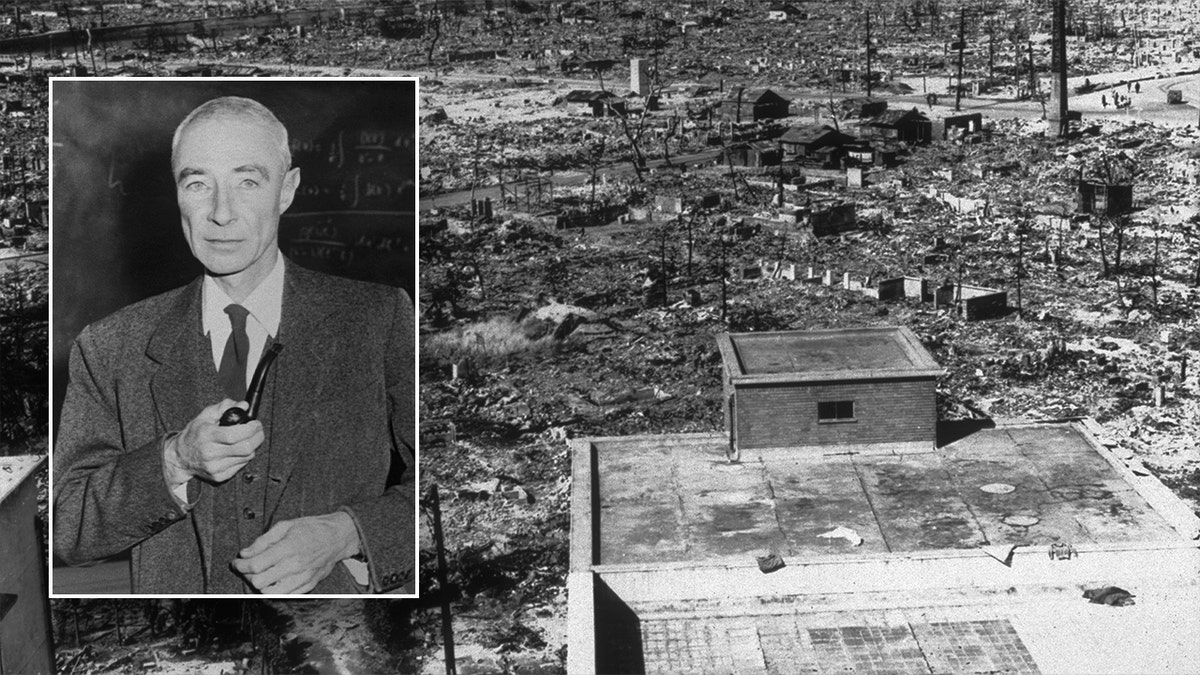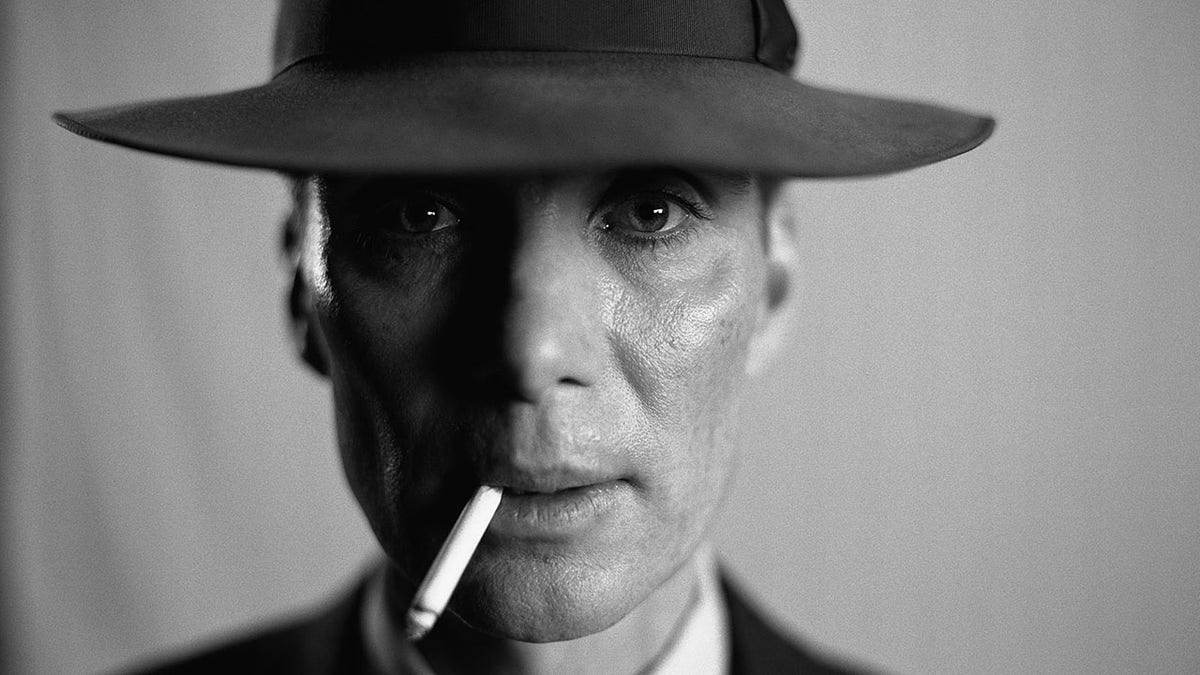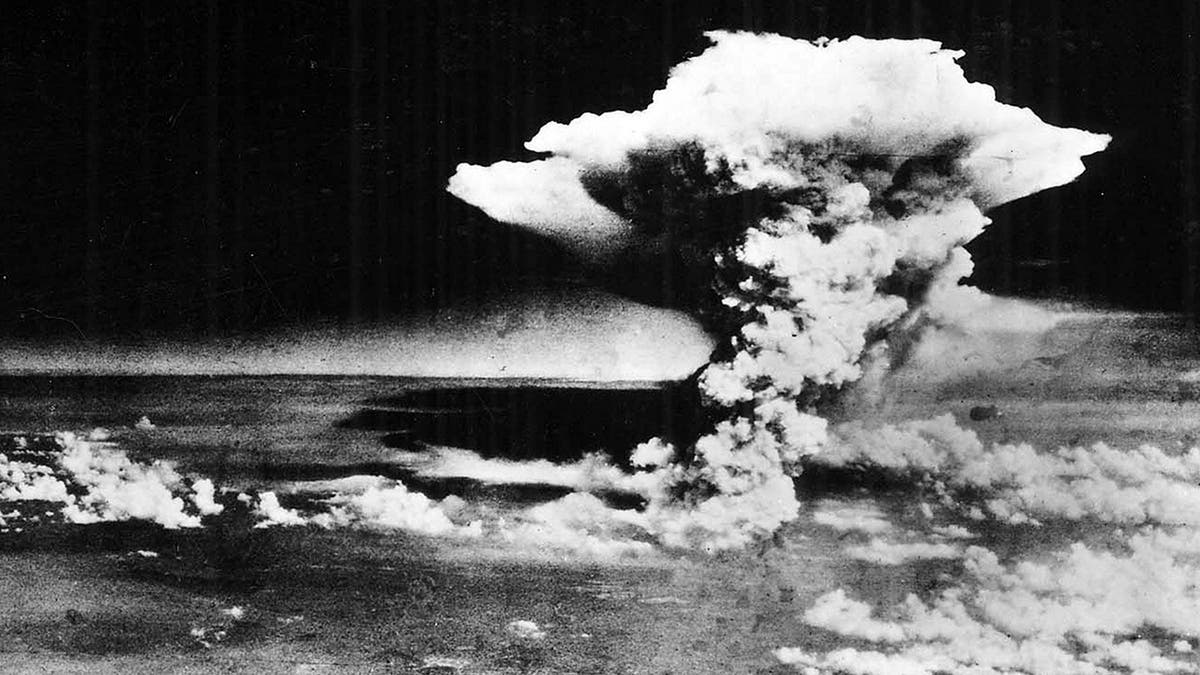On Aug. 6, 1945, the United States dropped an atomic bomb on the Japanese city of Hiroshima. On Aug. 9, 1945, a second bombing was dropped on Nagasaki.
The atomic bombs instantly took thousands of lives and thousands more in the aftermath from radiation and injury.
The bombings led to Japan's surrender, bringing an end to World War II, which claimed the lives of 418,500 American civilians and soldiers, according to The National WWII Museum.

Theoretical physicist J. Robert Oppenheimer was a leader in the creation of the atomic bomb. (Getty Images I Hulton Archive/Getty Images)
MORE PEOPLE EXPOSED TO MANHATTAN PROJECT CHEMICALS DESERVE COMPENSATION, ADVOCATES SAY
The controversial decision to drop the atomic bombs on Japan is still debated today.
Below is more information about the development of the atomic bomb and the causalities that resulted in the bombings.
- Who invented the atomic bomb?
- How many people died during the Hiroshima bombing?
- Why did the U.S. bomb Hiroshima?
1. Who invented the atomic bomb?
The atomic bomb was developed in a secret government initiative known as the Manhattan Project, according to the U.S. Department of Defense. Army Lt. Gen. Leslie Groves was appointed director of the Manhattan Project and chose theoretical physicist J. Robert Oppenheimer to lead the physics aspects involved in the making of the atomic bomb, according to the source.
AL JAZEERA VIDEO SLAMMING ‘OPPENHEIMER’ FOR NOT CHALLENGING US ‘WAR CRIMES’ AGAINST JAPAN GOES VIRAL
Oppenheimer became known as the "father of the atomic bomb."
More than 130,000 people were employed in the highly classified mission to create the first atomic bombs, according to the Department of Energy.

Cillian Murphy played J. Robert Oppenheimer in the 2023 Oscar-winning biographical film. (Universal Pictures)
The project had a budget of over $2 billion, according to the source. On July 16, 1945, the first nuclear explosion occurred in a test near Los Alamos, New Mexico, according to the Air Force Nuclear Weapons Center. The atomic bomb test was code named "Trinity" and was a success.
In 2023, the Christopher Nolan directed film "Oppenheimer" was released, telling the story of the life of the theoretical physicist who had a large hand in the invention of the atomic bomb.
‘OPPENHEIMER’ PREMIERES IN JAPAN MONTHS AFTER US RELEASE, SPARKING EMOTIONAL REACTIONS
2. How many people died during the Hiroshima bombing?
Thousands of people died during the Hiroshima bombing, both immediately and from radiation symptoms weeks later.
The final causality numbers from the Hiroshima bombing are unknown. Though the bomb dropped on Hiroshima, code-named "Little Boy," directly killed around 70,000 people, according to History.com. Others died from injuries and radiation sickness, which increased the death toll to over 100,000.
In the years following the bombing, even more people were killed in the aftermath of the bomb, due to cancer and other long-term radiation effects, according to History.com.
‘MINUTES TO HIROSHIMA’: THE STORY BEHIND THE ATOMIC BOMBINGS THAT ENDED WWII
Three days after the atomic bomb was dropped on Hiroshima, a second bomb, code-named "Fat Boy," was dropped on Nagasaki. It is estimated that between 60,000 and 80,000 were killed in Nagasaki, according to History.com. This includes those that died from direct exposure and from the long-term side effects of radiation.
3. Why did the U.S. bomb Hiroshima?
The United States bombed Hiroshima during World War II. The bombs were dropped so that Japan would quickly surrender, and the war would end.
On Aug. 6, 1945, the first of two atomic bombs was dropped on Japan, in the city of Hiroshima. The 9,700-pound bomb, according to the Nuclear Museum, was dropped by The Enola Gay, a B-29 Superfortress plane. The second of the two bombs was dropped three days later on Nagasaki.

On Aug. 6, 1945, an atomic bomb was dropped on Hiroshima, Japan. (Universal History Archive/UIG via Getty Images)
CLICK HERE TO GET THE FOX NEWS APP
The atomic bombs did lead to the end of the war and President Truman announced Japan's surrender on Aug. 14, 1945.
Truman's decision to drop the bombs is still debated today.
Ashlyn Messier is a writer for Fox News Digital.